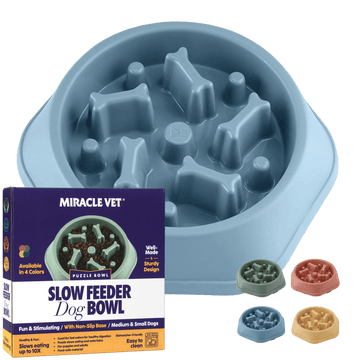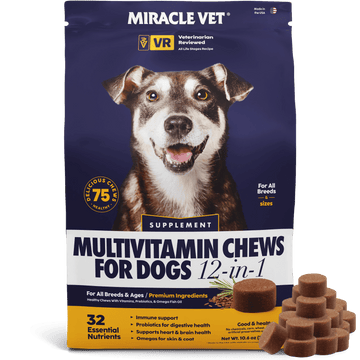
Allergies in Dogs
There are three main categories of allergens that can cause symptoms in your dog.
They are food and environmental.
What happens when a dog has an allergic reaction is their body recognizes everyday objects as hazards, so their body reacts as if it were encountering something dangerous to its health.
An allergy can be triggered by contact, inhalation, or consumption.
In this article, we will cover all the common things associated with allergies.
However, you should know that many times cleaning up your dog's diet and checking if your dog has leaky gut can help with many allergy issues.
You can help your dogs allergies by.
- Feeding a higher quality dog food
- Heal leaky gut with probiotics
- Have your dog tested for allergies
Other issues like your dog having a zinc deficiency can also lead to what seems like an allergy problem.
Common Allergy Symptoms
The symptoms of allergies vary quite widely. Some of the most common are as follows:
- Runny or “goopy” eyes
- Sneezing
- Itchy coat, usually noticed by seeing the dog constantly scratching or licking themselves
- Diarrhea and vomiting
- Abnormally loud snoring or trouble breathing (this can indicate swelling in the throat)
- Rash
- Infections such as ear and skin infections
It is also important to note that just because you see any or multiple symptoms it does not necessarily mean an allergen is a culprit.
Dogs can get ear infections from rolling in dirt, a rash from poison ivy, diarrhea from getting into the trash, etc.
Allergies and Different Dog Breeds
It is possible for any dog to develop allergies however some breeds are more prone to them than others.
For example, Golden Retrievers are well known to suffer from allergies more commonly than others.
It is also possible for two dogs of the same litter to have different reactions to allergens. Most of the time you will not be able to tell if your dog is allergic to something or not until they are exposed to it.
It's also a common occurrence for a dog to develop allergies over time, you may have a dog with no issues but then spring rolls around suddenly their eyes start running on high pollen days.
Environmental Allergies And Your K9
An allergic reaction can be caused by many things. Pollen and grass are the two most prevalent seasonal allergies.
Also, plants such as poison ivy, oak, and sumac can cause a rash. Dust, mold spores, cigarette smoke, cleaning products, certain types of fabrics and even other pets dander can also be a trigger.
Typically with contact and inhalation triggers, you will see more symptoms in their eyes, throat, sneezing, and an itchy coat than diarrhea and vomiting but that is not always the case.
If it is a pollen allergy, you will see symptoms worsen in the spring. A grass allergy in the summer.
If you think your dog may be suffering from one of these two you can narrow it down by paying attention to when the dog's symptoms are flaring up the most.
Your weather app or news report will typically tell you when there is a high pollen day so you can use that to track symptom severity.
Next time you mow the lawn and let the dog out, you will see a worsening of allergy symptoms within minutes if they have a grass allergy.
Food Type Allergies
Food allergies can be caused by just about anything.
More often grains such as wheat, soy, and corn are the culprit. Many lower quality dog foods and treats have one or all of these as a major ingredient.
Some dogs also have problems with chicken or beef, in which case a fish based food is usually recommended.
The symptoms of a food allergy are typically vomiting and diarrhea, as well as loss of hair. It is important to pay attention to the nutrition label on treats and table scraps as well as the dog’s actual food.
All natural treats and food are recommended as well as limiting table scraps.
You may also never know exactly what the allergy is if your dog is having allergic reactions and you try a different food and it went away, testing may not be necessary.
This is known as the elimination diet. If you are feeding your dog something with corn in it and try a food without corn, you may have found the guilty party.
This can sometimes be frustrating and may take some patience before you find the right food for your dog.
Allergy Testing
You may be able to narrow down what your dog is allergic to but the only real way to know for sure is by getting them tested.
Your veterinarian will be able to offer you a blood test and a skin test known as an intradermal skin test.
They typically only do an allergy test once other factors that can cause symptoms are eliminated such as fleas and mites, hyperthyroidism and other infections.
The different tests are for different allergens.
Blood tests are more common and easier on the dog. The vet will simply draw some blood and send it to the lab for testing.
Blood tests are the best for determining food allergies but can also pick up on pollen and dust allergies.
Intradermal skin testing is a long process. The dog needs to be sedated and have a small patch of fur shaved.
The vet will then use a needle to inject a small number of common allergens slightly under their skin and observe for a reaction.
They have to do this with each separate possible allergen to rule them out one by one.
Due to the extent of this test, if you can narrow it down by trying different foods or paying attention to high pollen days and comparing symptoms, your dog will thank you.
Allergy Treatments
The best thing you can do for your dog once you figure out what they are allergic to is to avoid it all together.
This is, of course, easier with food-based triggers. Is your dog allergic to corn or soy? Feed them a higher quality food without fillers.
Is your dog is allergic to chicken? Feed them a fish based food. With environmental allergies, this can be a little tougher.
Your vet will be able to advise you on the best treatments. For dust, you should clean and wash your dog's bedding at least once a week.
Also keeping up with dusting underneath furniture can help. For a pollen allergy, you really don’t want to keep your dog cooped up inside the house for an entire season.
It’s springtime and you want to walk your dog to enjoy the weather, what should you do?
If your dog is itching like crazy, Benadryl is a great way to offer relief.
You want to make sure you are using a version without alcohol and are only giving a small amount.
We recommend discussing the use of an antihistamine with your vet before using it. Vets will also be able to offer anti-allergy injections.
These can greatly help reduce symptoms in your dog and some of them will last around six months.
Cortisone is also an option, typically only given to dogs with severe reactions.
Having your dog on a proper diet and supplementation is another great way to prevent or reduce the severity of symptoms.
Feeding your dog a high-quality food that does not contain anything the dog is allergic to is only the start. Food and supplements that have omega fatty acids and probiotics greatly help in the reduction of symptoms.
They will not make the allergy go away completely but help make it manageable. Fish oil is becoming one of the most common supplements for dogs.
If you are using a fish based food it will probably not be necessary to also use fish oil capsules.
Due to such a wide variety of triggers and symptoms, if you think your dog may be allergic to something you should consult your vet.
They will start by giving your pet a thorough examination to rule out other possible causes.
After this, if you do not get a test right away you can start the elimination diet. If the symptoms are not too severe you can also do some environmental testing at home.
We do not recommend purposefully making contact between your dog and an allergen but by paying attention to what the dog gets into you may be able to figure out the cause and go from there.
If you’re interested in giving it a try, click here to learn more about MiracleVet Omega Biotics.








